Coronavirus Australia live news: WA softens borders … with conditions
Amid falling case numbers, WA Premier Mark McGowan will ease tough restrictions on people seeking to enter from Victoria and NSW.

- WA softens borders for Vic, NSW
- Frydenberg’s plea: Get kids back to school
- Nine hotel staff infected since overhaul
- NSW records two new cases
- Victoria has 10 new cases, 7 deaths
Welcome to our rolling coverage of the continuing coronavirus pandemic. Western Australia will ease tough restrictions on people seeking to enter from Victoria and New South Wales Josh Frydenberg has pleaded for Victorian Premier Daniel Andrews to get all students in the state back to school. Nine staff members working at two quarantine hotels in Melbourne have been infected with coronavirus since the Andrews government’s program was overhauled. Victoria has recorded 10 new cases of coronavirus in the 24 hours to Tuesday, and seven deaths as NSW records another straight day without community transmission.
Rachel Baxendale 11pm: Hotspots linger as virus recedes
As Victoria’s second wave of coronavirus recedes from 7880 active cases on August 11 to 366 on Tuesday, a handful of outer-suburban hotspots at the epicentre during the peak continue to be home to stubborn higher caseloads.
Wyndham, taking in suburbs including Tarneit, Hoppers Crossing and Werribee in Melbourne’s outer southwest, remained the local government area with the most cases on Tuesday, at 53, down from 915 on August 11.
In neighbouring outer western Brimbank there were 50 active cases, down from 883.
Damon Johnson 10.30pm: Despairing doctor’s plea to Andrews on lockdown
A Melbourne doctor who wrote an impassioned plea to Daniel Andrews warning him that the city’s lockdown was causing a devastating wave of mental “anguish, despair and suicidal” thoughts among children says he is not easing restrictions fast enough, even as case numbers fall.
Camberwell GP Stacey Harris and nine other doctors signed an open letter to the Victorian Premier revealing she was treating between 15 and 20 mental health conditions each day, compared with about five a day last year.
A week after sending the open letter, Dr Harris told The Australian the limited changes did not go far enough to repair the mental health damage wrought on the community. “I am relieved for the school kids but there is so much heartache out there with loss of jobs (and) social isolation causing huge mental health problems,” she said on Tuesday.
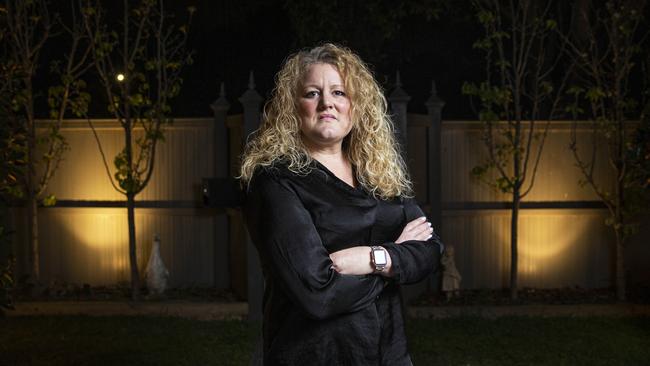
AFP 10pm: 100m extra vaccine doses for poorer countries
Up to 100 million additional doses of any eventual COVID-19 vaccines will be secured for delivery to poorer countries in 2021, Gavi, the Vaccine Alliance, announced on Tuesday.
The announcement doubles the number of doses already secured from the Serum Institute of India, the world’s largest vaccine manufacturer by volume, by Gavi and the Bill & Melinda Gates Foundation, following an initial agreement last month.
“This brings the total number of vaccine doses to be covered by the partnership between SII, Gavi, and the Gates Foundation to an aggregate of up to 200 million doses,” Gavi said in a statement.
It stressed that the agreement “provides an option to secure additional doses, potentially several times the 200 million dose total,” if needed, adding that the vaccines will have a ceiling price of $US3 ($4.24) per dose.
READ MORE: Big unis face huge hit from fee shake-up
Adam Creighton 9.30pm: Hysteria ‘is Salem all over again’
A top investment strategist who advises the Future Fund has likened the response to COVID-19 to the Salem witch trials, warning that governments will cause a depression if they continually “lock down” communities to stamp out the coronavirus.
Marko Papic, chief strategist at California-based Clocktower Group, has claimed in a new book, Geopolitical Alpha, that the response to COVID-19 “would be studied by academics for centuries as an example of ‘mass hysteria’ on an order of magnitude similar to the one that culminated in the Salem witch trials”.
“If G20 economies embrace indiscriminate flatten-the-curve policies, particularly if they do so indefinitely, they will cause a depression — not a 2008-style Great Recession, but a 1930s-style Great Depression,” he writes in his book published in the US this month.

Paul Garvey 9pm: PM’s plea: Let’s get city hearts pumping again
Scott Morrison has appealed to the nation’s workers to get back to the office and help turbocharge the economy as businesses struggle to coax employees out of their homes and into CBDs.
As the head of the Commonwealth’s Public Service Commission ordered the country’s 250,000 bureaucrats to get back into the office wherever it is safe to do so, the Prime Minister called for large corporations to loosen restrictions in cities with little to no coronavirus infections in a bid to save small businesses that have suffered a huge drop in foot traffic.
“It is important whether it’s here in the ACT or in Sydney or in Brisbane or Perth or anywhere else where the health advice enables it — obviously Victoria is still in a different position right now — for public servants to be back in their offices, buying their lunch at the local cafe and doing all of those things which support particularly those CBD economies,” Mr Morrison said.
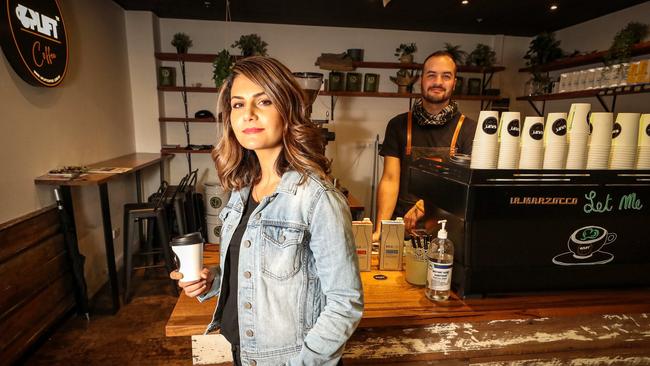
Graham Young 8.30pm: Economy, climate ‘more important than Covid’
Annastacia Palaszczuk’s tough border policies are winning support from up to three-quarters of Queenslanders but that might not be enough in itself to clinch the October 31 election, with the economy and climate change rated more than twice as important as vote changers.
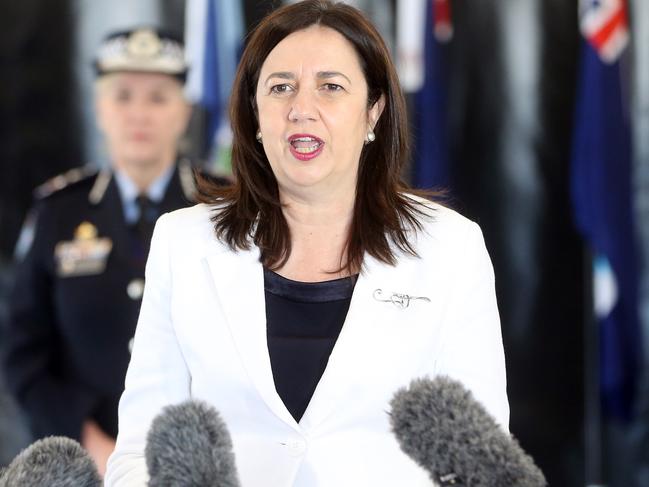
A poll of online virtual focus groups by the Australian Institute for Progress shows voters are expecting the COVID-19 crisis to produce lasting changes to Queenslander’s lives, including an exodus to the suburbs and ¬regions with the working from home trend continuing, an increase in online shopping and an embrace of telehealth.
In anticipation of COVID-19 playing a potentially decisive part in the Queensland state election, we polled an online virtual focus group of 251 voters, balanced for voting intention, on their attitudes to it.
When prompted, three-¬quarters of respondents (including 55 per cent of LNP voters) rated COVID-19 as electorally important. Unprompted, 18 per cent mentioned COVID as the most important issue, with the economy (38 per cent) and climate change (38 per cent) twice as likely to be mentioned.
Joe Kelly 8pm: Border rules ease as app allows remote checking
Western Australia’s border rules have been eased, with arrivals from Victoria no longer having to quarantine in a hotel from Monday and allowed to self-isolate at a suitable home for two weeks.
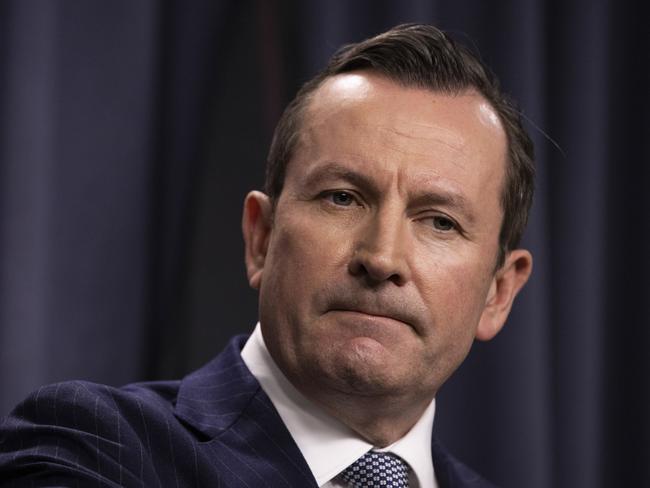
WA Premier Mark McGowan said new entrants, who would still require an exemption, would be tested on day one and day 11 under the plan, which he said was aimed at easing the demand on hotels with the number of international arrivals requiring quarantine set to increase.
He also unveiled a new platform, dubbed the G2G Now App, to “complement the work of WA police” and allow them to check in on people remotely while in self-quarantine in what he argued was an “Australian-first”.
Restrictions for arrivals from NSW will also be eased, bringing the east coast state into line with the rules for other state and territories. While he said the announcements were an “important step forward” on the path to reopening with the east, Mr McGowan said he was still not ready to set a date for the dropping of border restrictions.
Didi Tang 7.30pm: Breast milk could stop Covid spreading
Human breast milk could help to prevent or treat COVID-19, according to a new study by Chinese scientists, lending support to World Health Organisation guidelines that mothers should breastfeed their newborn babies even if they are infected with the coronavirus.
Researchers from the Beijing University of Chemical Technology found that whey proteins from human breast milk can inhibit the coronavirus by “blocking viral attachment, entry and even post-entry viral replication”. It was published on biorxiv.org, a preprint site for biology studies. The paper is yet to be peer-reviewed.
Whey proteins in cow and goat milk also could inhibit the virus but is less effective than human breast milk, which is believed to have a higher concentration of antiviral factors. Human whey had an inhibition efficiency of about 98 per cent.
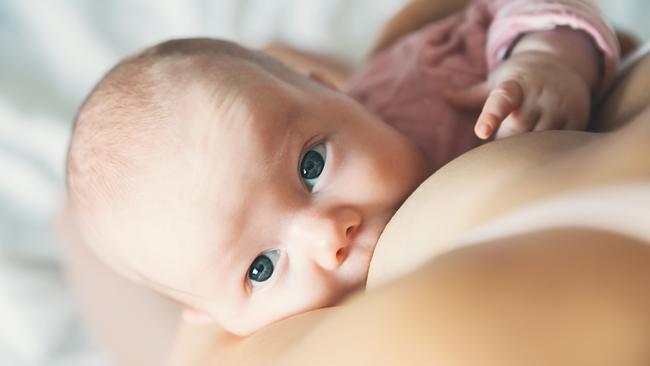
Will Pavia 7pm: Lonely Vermont is suddenly popular
This time last year the state of Vermont was offering $US10,000 ($14,162) to anyone who agreed to move there, in an effort to halt a steady decline in its population.

The problem no longer looks so urgent. In the past six months remote workers have streamed into the Green Mountains, fleeing east coast cities gripped by the coronavirus. Vermont, with its sparse population of about 624,000, had an exemplary record in clamping down on the infection rate.
Research last month by the University of Vermont suggested these were exactly the kind of people the state had sought to attract with cash incentives and advertising campaigns. The majority were under 50, half had a college degree and half expected that their employer would allow them to stay in Vermont permanently.
Elizabeth Grant, town administrator for Winhall in the Green Mountain National Forest, where there were many second homes, estimated that its population rose from less than 800 to more than 10,000. There had been “an enormous number of home sales,” she said. “A lot of these people are really staying. They put their children in school, they have registered their dogs.”
Juliana Secches, 46, a yoga and pilates instructor, left Manhattan with her son on March 12, driving to their family’s half-finished second home in central Vermont. Her husband, a doctor working at a New York hospital, comes up at the weekends. Waves of newcomers have arrived since. Her neighbour, who ploughs their road in winter, had just put his house on the market, she said. “It sold in three days for twice the asking price.”
The Times
READ MORE: Momentum gathers for prosecutions
Graham Richardson 6.28pm: Andrews still has a lock on next election
When the winds of change blow on politicians they tend to be cold, brutal and unforgiving. After a long and successful occupancy of Victoria’s top job, pressure is mounting on Daniel Andrews.

The past few weeks have been the most difficult of his career. Enemies are massing at his gate and he hangs on to office by the skin of his teeth. He is no longer regarded as the unbeatable face of Victorian Labor.
But the amazing thing about him is that, despite the bucketing he has copped, he is still favoured to win the next Victorian election.
James Kirby 6.00pm: In residential property, the house wins
As the residential property market shows clear signs of taking less of a hit than many expected, it’s houses — not units — that will be the first to recover, housing analysts suggest.
It turns out that in a “post COVID-19 market” the combination of low density and a selection of new government homebuyer initiatives have turned the residential sector inside out.
Not that long ago unit buyers led by investors drove residential prices, now it’s home buyers — particularly first home buyers — that rule the roost.
Stephen Lunn 5.29pm: Government ‘could have eased nursing home issues’
The government could have acted earlier to reduce the impact of Victoria’s COVID-19 second wave on nursing homes, health secretary Brendan Murphy says.

If the Victorian Aged Care Response Centre had been swung into action before July 25, the spread of coronavirus could have been reduced in nursing homes, where more than 620 lives have been lost, Professor Murphy told a Senate inquiry on Tuesday.
“If the public health response had been more prompt we might have avoided some of the scale of the outbreaks in Victoria,” he said.
Rachel Baxendale 4.10pm: Victoria aged care active cases continue to fall
There are 158 active cases of coronavirus linked to Victorian aged care facilities as of Tuesday — 24 fewer than on Monday – despite one of Tuesday’s new cases being linked to aged care.
As of Tuesday there have been 630 coronavirus deaths linked to aged care facilities in Victoria, including six of seven deaths reported in the 24 hours to Tuesday.
The 10 aged care outbreaks with the highest numbers of active cases as of Tuesday and deaths if any as of September 8 (the most recent date for which data is available) are:
– 34 active cases linked to Estia Keilor in Melbourne’s outer northwest (45 total). It is understood this cluster began when a resident returned from being treated for an unrelated condition at Footscray Hospital, having contracted coronavirus;
– 23 active cases linked to Opal Hobsons Bay Altona North in Melbourne’s southwest (44 total). It is understood this cluster began when a resident returned from being treated for an unrelated condition at Footscray Hospital, having contracted coronavirus;
– 22 active cases linked to Embracia Moonee Valley in Melbourne’s northwest (80 total, 5 deaths);

– 14 active cases linked to BaptCare Wyndham Lodge Community Werribee in Melbourne’s outer southwest (260 total, 18 deaths);
– 13 active cases linked to Edenvale Manor Keilor East, in Melbourne’s outer northwest (22 total);
– Eight active cases linked to Doutta Galla Woornack, in Sunshine, in Melbourne’s west (60 total);
– Seven active cases linked to Mercy Place Parkville in Melborune’s inner north (104 total, 14 deaths);
– Four active cases linked to Twin Parks in Reservoir, in Melbourne’s north (127 total, 20 deaths);
– Four active cases linked to Churches of Christ Care Arcadia in Essendon, in Melbourne’s northwest (22 total, one death);
– Three active cases linked to Epping Gardens in Epping, in Melbourne’s north (220 total, 35 deaths);
Non-aged care outbreaks with the highest numbers of active cases on Tuesday include:
— Nine active cases linked to the Casey community outbreak involving at least seven households in Melbourne’s outer southeast – down from 11 active cases on Monday (total cases: 44);
— Seven active cases linked to Footscray Hospital in Melbourne’s inner west – down from nine active cases on Monday (total cases: 20);
— Six active cases linked to The Alfred Hospital in Melbourne’s inner southeast – down from seven active cases on Monday (total cases: 11);
— Five active cases are currently linked to the Springvale shared accommodation outbreak in Melbourne’s outer southeast (total cases: 5). The same numbers as when this cluster was first confirmed on Friday;
READ MORE: Momentum gathers for prosecutions
Rachel Baxendale 4.10pm: Vic virus breakdown: 7 new cases still under investigation
Seven of Victoria’s 10 new coronavirus cases from tests processed on Monday remain under investigation on Tuesday afternoon, with the source yet to be established.
Of the remaining three, one is linked to Western Health, which runs the Footscray and Sunshine hospitals in Melbourne’s west, another is linked to Monash Health in the city’s southeast, while the third case is linked to the Embracia Moonee Valley aged care facility in Melbourne’s northwest. This facility was linked to one of yesterday’s cases, as well as several cases last week. As of September 8, Embracia Moonee Valley had been linked to 46 cases and five deaths;
Victoria’s Department of Health and Human Services has not confirmed whether or not the Western Health case is linked to a cluster of 20 cases at Footscray Hospital, seven of which are active as of Tuesday.
There have now been 20,158 cases of coronavirus in Victoria since the pandemic began — an increase of nine since Monday due to the reclassification of one previously notified case.
The following local government areas have new cases on Tuesday:
— Casey (outer southeast): 2
— Monash (southeast): 2
—- Moreland (north): 2
— Robson’s Bay (southwest): 1
— Knox (east): 1
— Moonee Valley (northwest): 1
— Wyndham (outer southwest): 1
Of 20,159 people who have had coronavirus in Victoria since the pandemic began, 18,978 have recovered – an increase of 36 since Monday.
Of 326 active cases in Victoria on Tuesday, 320 are in people from metropolitan Melbourne, while six are in people from regional Victoria.
Of the total number of cases since the pandemic began, 18,766 have been in people from Melbourne, while 1192 have been in those from regional Victoria.
There have been 9613 cases in men and 10,530 in women.
The total number of cases in health workers has increased by 13 since Monday, to 3540, although the number of active cases in health workers decreased by seven to 53.
It is understood some previously notified cases have been reclassified as being health workers.
There are two cases linked to residential disability accommodation – all of them in staff. This is down from four cases on Monday.
READ MORE: COVID reveals NBN shortfalls and pricing ‘mismatch’
Imogen Reid 3.50pm: WA softens its borders … with conditions
WA Premier Mark McGowan has announced the state’s hard border restrictions will be lifted to allow residents of NSW and Victoria to cross the border, provided they undergo quarantine.
From Monday, 5 October, residents of NSW will be able to enter WA under the same restrictions as other states.
Mr McGowan said the decision was based on the recommendation of the Chief Health Officer, and the declining number of cases in Victoria and NSW.
Under the current restrictions, people who have been in NSW in the past 14 days do not qualify as an exempt traveller and are not permitted to enter WA.
“We expect this change will allow for more exempt travel to occur from NSW, similar to our original hard border arrangement in place from April 5. This is a positive step forward for our nation,” Mr McGowan said.

“We can make these adjustments to our border controls because of the positive results we have recently seen over east. We have a responsibility to ensure our border controls are appropriate and reasonable as we continue to do what is in our state’s best interests and that is to protect West Australians from the worst of this deadly virus.”
Victorians who enter WA from 5 October will “no longer need to quarantine in a hotel facility as long as they have an appropriate premise to quarantine in safely,” Mr McGowan said.
“Victorians or people from Victoria will be tested on arrival into Perth and again on day 11 of their 14 days of quarantine,” he said.
“I must note for people who have travelled from Victoria before Monday, you will need to complete your 14 days of hotel quarantine.”
Mr McGowan said the change was “significant but reasonable” and would “ease the demand of our hotel quarantine arrangements as our number of international arrivals of Australians returning home is expected to gradually increase over coming weeks.”
It comes as Prime Minister Scott Morrison said a new “triage” system that allows international travellers to quarantine at home would replace the mandatory hotel quarantine system.
READ MORE: Accused border jumpers face jail
Rachel Baxendale 2.55pm: Ingrid Stitt replaces Mikakos in Vic cabinet
Victorian Premier Daniel Andrews has promoted former Australian Services Union Victorian secretary Ingrid Stitt into his cabinet, to replace former health minister Jenny Mikakos following her resignation on Friday.
Ms Stitt will take on the roles of Minister for Workplace Safety and Minister for Early Childhood.
The workplace safety role is currently held by Attorney-General Jill Hennessy, while the early childhood portfolio is a new one, which had previously been the remit of Education Minister James Merlino.
Mr Andrews said Ms Stitt would have responsibility for the roll-out of free three-year-old kinder.

Following Martin Foley’s departure from the mental health, equality and creative industries portfolios to replace Ms Mikakos as Health Minister, Mr Merlino, who is also Deputy Premier, is set to add Minister for Mental Health to his responsibilities.
“The findings of the Royal Commission into Victoria’s Mental Health System will be delivered early next year,” Mr Andrews said.
“We understand the profound importance of getting this reform right – and what it will mean for millions of Victorians.
“The Deputy Premier will lead this work, delivering each and every one of the Commission’s recommendations as we overhaul a broken system – and save lives.”
Assistant Treasurer Danny Pearson, will also take on the role of Minister for Creative Industries, while Higher Education Minister Gayle Tierney will take on Ms Mikakos’s previous role as Deputy Leader of the Government in the Legislative Council.
“I know Ingrid Stitt will be an outstanding contributor to our cabinet, bringing her dedication to delivering safer workplaces and overseeing those critical early years for our youngest Victorians,” Mr Andrews said.
READ MORE: Boris Johnson too disorganised to be a dictator
Richard Ferguson 2.04pm: ‘As a parent and Treasurer, get kids back to school’
Josh Frydenberg has pleaded for Victorian Premier Daniel Andrews to get all students in the state back to school, not just as the nation’s treasurer but as a parent.
There will be a staggered reopening of schools from the second week of term 4 in Victoria, according to Mr Andrews.
But the Treasurer said on Tuesday that all children should return to school as quickly as possible for their own wellbeing and to make for the education losses they have incurred from lockdown.
“As a Victorian parent, I’m also very focused on my children and other people’s children getting back to school,” he said.

“I note that that timetable has been accelerated for some of the year levels but I cannot see why all students can’t get back to school in Victoria now.
“Not just for their educational development — because so many of those students have lost nearly a year of study, not just for their educational development in the classroom, but for their wellbeing.
“I’ve read letters from well-regarded doctors and GPs, open letters to the Premier of Victoria, and they speak of the mental health state of young people in Victoria as a result of the lockdown.
“So I say to the Premier follow the medical advice but please get Victorian children back to school at all levels.”
READ MORE: How to climb the corporate ladder while working remotely
David Ross 1.11pm: Albanese urges dialogue over conflict on wharf dispute
Federal Opposition Leader Anthony Albanese has lashed the federal government after it swung in behind shipping company Patrick in its dispute with members of the Maritime Workers Union.
“There should be dialogue in the interests of both parties coming together, rather than conflict, and that the commonwealth should be playing a role in that rather than engaging in rhetoric for political purposes,” Mr Albanese said.
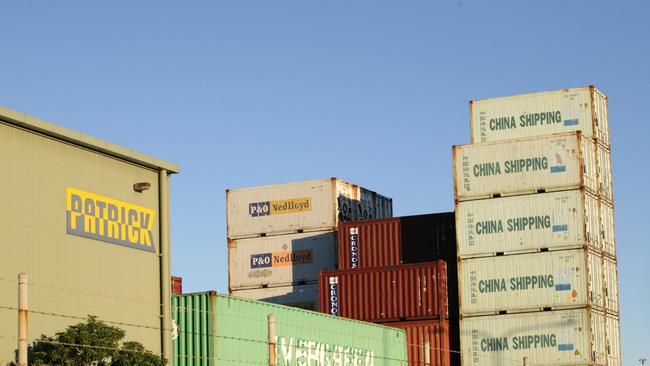
“We have an industrial relations system that provides for action.”
“This is the government’s industrial relations system, but there should be, also, as well as formal processes, the commonwealth should be playing a role in trying to bring the parties together.”
Mr Albanese said the government should do its job of trying to resolve the dispute by bringing the parties together not taking a side.
“Trade unions and employers have a common interest. They have an interest in successful businesses, but, of course, successful businesses are ones as well that have a cooperative workforce,” he said.
READ MORE: Aged-care watchdog gave no fines despite complaints
Richard Ferguson 12.47pm: Unions holding up ports in pandemic ‘extortion’: PM
Scott Morrison has accused unions at the centre of the Sydney wharf pay dispute of “extortion”, saying the holding up of ports during the pandemic is “not on.”
Attorney-General Christian Porter will intervene to support major stevedore Patrick’s urgent application to stop the Maritime Union of Australia’s industrial action at four ports.
The Prime Minister said on Tuesday that any delays at ports due to “militant unions” was not acceptable during the COVID crisis.
“There are 40 ships and I’m told there’s some 90,000 containers out there that includes medical supplies,” Mr Morrison said.
“This is just extraordinary, appalling behaviour. And they as much as admitted it on morning television this morning … that is just straight-out extortion. That is reprehensible.
“We cannot have the militant end of the union movement effectively engaging in a campaign of extortion against the Australian people in the middle of a COVID-19 recession.”
Lodging its application with the Fair Work Commission on Monday, Patrick said Australia’s economy was losing hundreds of millions of dollars a day and its operations were three weeks behind schedule at Port Botany in Sydney as a result of stoppages, go-slows and overtime bans.
READ MORE: Porter to back Patrick in union port brawl
Rachel Baxendale 12.30pm: Nine staff in Melbourne quarantine hotels infected
Nine staff members working at two quarantine hotels in Melbourne have been infected with coronavirus since the Andrews government’s program was overhauled and largely shut down in late July, prompting questions over whether sufficient lessons have been learnt since two clusters in security guards sparked Victoria’s second wave.
The Andrews government has finally confirmed the figure on Tuesday, following days of questions from journalists and obfuscation from government media advisers after it was reported on Saturday that 12 WorkSafe reports had been made regarding infections in workers at the Brady Hotel and Grand Chancellor Hotel in Melbourne‘s CBD.
While Victoria‘s hotel quarantine program stopped taking new arrivals in June, the two hotels have since been involved in providing quarantine for vulnerable community members who cannot safely isolate at home, including residents of housing commission towers. The Grand Chancellor‘s involvement in the program ceased on September 14.
The scheme has been administered by the Andrews government‘s Department of Justice and Community Safety and Alfred Health.
On Tuesday, a spokeswoman from DJCS said a total of nine people who worked at the “health hotels” had tested positive for COVID-19 since July 27.
“There are no active cases, with the last positive case in late August,” the spokeswoman confirmed.
Of the nine staff, one was a Department of Health and Human Services staff member, another a Victoria Police member. “Neither has been assessed as having acquired COVID-19 at a health hotel,” the spokeswoman said.
Another two staff members who contracted the virus were Alfred Health staff, while the remaining five worked for cleaning and catering company Spotless.
“Acquisition has been assessed as most likely occurring from community transmission outside of the health hotels,” the spokeswoman said of the Alfred Health and Spotless cases. How this assessment was made is not clear.
At least seven Spotless cleaning staff working the Chadstone shopping centre in Melbourne’s southeast were linked to a coronavirus cluster in mid August.
The confirmation of the nine cases follows a report in The Saturday Paper that 12 government notifications had been made of positive cases among staff in the hotels, including private contractors, none of which had been publicly disclosed.
Following that report, The Australian put questions to Premier Daniel Andrews at two press conferences and followed up repeatedly with media advisers from Saturday until Tuesday before finally receiving details of how many people had tested positive and who had employed them.
Asked on Saturday whether he was concerned given what has been learned from mistakes made in the original hotel quarantine program, that casual and contract workers from companies including Spotless were still being employed to run hotel quarantine, Mr Andrews said: “Let me come back to you as to the accuracy of that comment, I don‘t have all the detail to hand in terms of those two hotels that you referenced.”
“This is a program that’s been reset,” Mr Andrews said.
“It’s a different program in that it is not dealing with international travellers, in the main … leave that with me and I will have someone come back to you.”
A DJCS spokeswoman later on Saturday provided a statement which provided no answers to the question of how many people who have worked at the Brady and Grand Chancellor hotels have tested positive for coronavirus since August 1.
Nor did the statement say whether casual and contract staff were still involved in working hotel quarantine, nor what has been done in terms of contract tracing to determine whether these people contracted the virus at work.
The spokeswoman said one positive case could have resulted in “multiple WorkSafe notices from various organisations involved, so if you have 12 notifications that doesn’t necessarily mean there are 12 positive cases,” she said on Saturday, without providing any answer to the simple question of how many positive cases there had been.
“The Department of Justice and Community Safety is strengthening infection control, professional standards and oversight across COVID-19 accommodation,” she said at the time.
“The program continues to support members of the community who are unable to isolate or quarantine at their own place of residence, including people who are homeless, fleeing domestic violence and our frontline workers.
“Staff safety is paramount, especially in health hotels where positive cases are accommodated, and we’ve strengthened processes and fast-tracked contact tracing when a positive case is identified.
“Health hotels, where confirmed cases and close contacts of confirmed cases are accommodated for their isolation period, are overseen by the Department of Justice and Community Safety, assisted by Alfred Health.
“Resident supervision at health hotels is carried out by Victoria Police. Department employed and trained Resident Support Officers are responsible for supervision at other locations.
“Under strengthened infection control standards, site exclusivity protocols and restrictions for staff movement between sites have been introduced where required.”
READ MORE: CHO ‘should lead response, not bureaucrats’
Richard Ferguson 11.44am: PM defends swift set-up of hotel quarantine scheme
Scott Morrison has defended the quick pace of setting up hotel quarantine systems throughout the country, saying state and territory governments were the most insistent about keeping overseas travellers in hotels to stop the spread of COVID-19.
The quickness of setting up Victoria’s failed hotel quarantine scheme has been identified as a key factor behind the second wave of coronavirus which forced Melbourne back into lockdown.
The Prime Minister said on Tuesday that states led the push for hotel quarantine in national cabinet and he would leave to the inquiry to find whether his offer of Australian Defence Force help to Victoria would have made any difference.
“It was actually the states and territories that were most urgent in moving forward and they made the recommendation to move so quickly to establish hotel quarantine and we supported that,” he said in Canberra.
“The offer was made for the ADF to be available. It was taken up by most states, not by some, and that was a decision for the states and territories, so how best that was to be done was a matter for those states and territories to determine. And so I will leave it to the inquiry to make their own recommendations.”
READ MORE: Top bureaucrats singled out over 768 deaths
Erin Lyons 11.12am: Zero community transmission again for NSW
Two new cases of coronavirus have been diagnosed in NSW, as the state records another day of zero community transmission.
Two new cases of COVID-19 in returned travellers were diagnosed in the 24 hours to 8pm last night, bringing the total number of cases in NSW to 4,031.
— NSW Health (@NSWHealth) September 29, 2020
For the fourth day in a row, NSW has not reported a single locally acquired case of #COVID19. pic.twitter.com/ch6gVp6gr8
Both cases are returned travellers in hotel quarantine.
This follows two straight days of zero cases.
However testing numbers remain low with less than 7000 (6381) tests conducted on Monday, similar to Sunday’s figure of 6353.
The health department is now urging the community to come forward, particularly as school holidays kicks off and residents are moving around the community.
“NSW Health thanks the community for all they have done towards reducing COVID-19 numbers and continues to ask people to remain vigilant and come forward for testing immediately if symptoms like a runny nose, scratchy throat, cough or fever appear,” the department said in a statement.
READ MORE: Gladys’ Praetorian Guard plans ahead
Rachel Baxendale 10.45am: Victoria’s active cases drop to 326
Victoria has 326 known active cases of coronavirus as of Tuesday, down from 359 on Monday — a decrease of 33.
Of the state’s 10 new cases on Tuesday, three have so far been linked to known outbreaks, while the remaining seven are under investigation.
One previously reported case has been reclassified.
Seven deaths reported in the 24 hours to Tuesday have brought the state’s coronavirus death toll to 794.
These include the deaths of a man in his 60s, a man in his 70s, a woman and two men in their 80s, and a woman and a man in their 90s.
All but one of the deaths was linked to aged care, bringing the total number of coronavirus deaths linked to aged care in Victoria to 630.
There are 46 people in Victorian hospitals with coronavirus on Tuesday, including five in intensive care, of whom four are on ventilators.
This compares with 49 people in hospital on Monday, including eight in intensive care, of whom four were on ventilators.
Victoria’s 10 new cases on Tuesday come after 8226 tests were processed in the 24 hours to Tuesday — up from a more than three month low of 6807 tests processed in the 24 hours to Monday.
The positive test rate on Tuesday is 0.12 per cent, compared with 0.07 per cent on Monday and 0.15 per cent on Sunday.
There have been 4273 cases since the pandemic began where contact tracers have been unable to establish a source of infection — a decrease of one case since Monday.
Aged care linked cases comprise 48.5 per cent of Victoria’s total number of active coronavirus cases, with 158 active cases linked to aged care on Tuesday, down from 182 on Monday.
There are 53 cases linked to health workers, including aged care and disability workers, down from 60 on Monday.
This includes two cases in staff linked to residential disability accommodation.
There are six active cases in regional Victoria on Tuesday, down from nine on Monday.
READ MORE: Accidental nuclear exchange ‘a risk’
Robyn Ironside 10.32am: Alice Springs new attraction — parked planes
An aircraft storage site at Alice Springs is stopping travellers in their tracks, as the number of planes parked in the Red Centre reaches 100.
There’s about 90 planes parked at Alice Springs airport. Planes started arriving at Asia Pacific Aircraft Storage in April and some flew in as recently as last week. A jarring and rather sad sight. pic.twitter.com/crchxyFGnF
— Megan Dingwall (@PegsontheLine) September 28, 2020
READ the full story here
David Swan 10.18am: Microsoft’s cloud services are down
Thousands of workers globally have been left unable to access their emails in Outlook or other Microsoft services including Teams and OneDrive, with an issue affecting Microsoft’s cloud software.
“We’re investigating an issue affecting access to multiple Microsoft 365 services,” Microsoft said on Twitter.
“We’re working to identify the full impact and will provide more information shortly.”
We're investigating an issue affecting access to multiple Microsoft 365 services. We're working to identify the full impact and will provide more information shortly.
— Microsoft 365 Status (@MSFT365Status) September 28, 2020
We’re rerouting traffic to alternate infrastructure to improve the user experience while we continue to investigate the issue. Please visit https://t.co/AEUj8uAGXl for additional information.
— Microsoft 365 Status (@MSFT365Status) September 28, 2020
Anyone else having trouble with their computer? We’ve been told there is a world wide outage or something with Microsoft exchange, but that was via text message from our ex-IT guy now living in Germany. Anyone here know anything about it?
— Jane Caro (@JaneCaro) September 29, 2020
The issue is ongoing, and Microsoft said attempts to roll back a recent update haven’t worked.
The company has been contacted for further comment.
READ MORE live tech news updates in The Download
Lilly Vitorovich 9.47am: After Jones, Fordham bet pays off for 2GB
Ben Fordham has retained nearly all of 2GB’s radio audience in Sydney following the departure of veteran broadcaster Alan Jones.
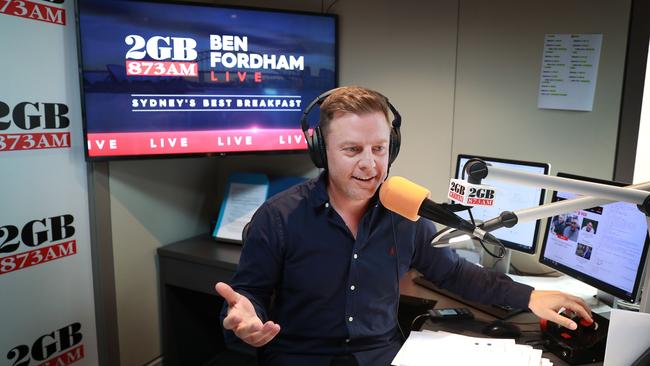
In the second radio survey of the year in April, Jones recorded the largest audience jump in Sydney during the early days of the coronavirus crisis, with his share rising 3.1 percentage points to 17.9 per cent. In Brisbane, his share rose 1.3 points to 9.7 per cent.
READ the full story here
David Rogers 9.40am: ASX to resume shares rebound ahead of budget
Australia’s share market rebound from a 3-month low last week should resume after another strong night on Wall Street amid hopes of US fiscal stimulus.
The local bourse may even outperform as major fiscal stimulus at next week’s Budget looks certain versus the low chance of much-needed US fiscal stimulus before the US election.
Improving domestic coronavirus and economic reopening trends in Australia versus worsening trends in Europe and the US should also help the local market versus offshore markets.
While markets have their hopes up, US House speaker Nancy Pelosi was cryptic, telling MSNBC: “We can get this done”, while emphasising that more “much more” money is needed.
“When he’s ready to come back to the table we’re ready to have that conversation,” Pelosi said. “But he has to come back with much more money to get the job done.”
So nothing has really changed from a few weeks ago, when the fiscal talks were at a stalemate.
The bigger risk here may be a lack of progress this close to the US election, particularly after Amy Coney Barrett’s Supreme court nomination.
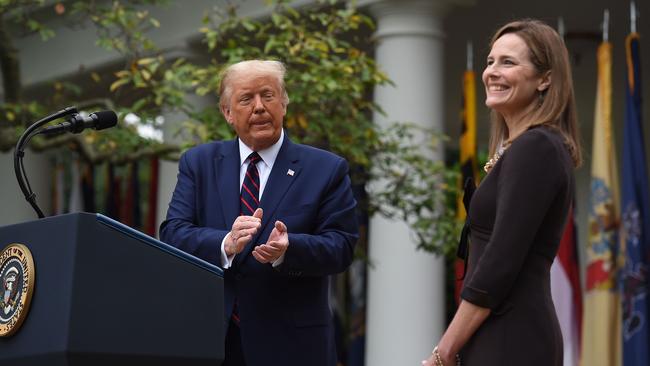
The major US indexes may have seen “false breakouts” from “bullish pennant patterns” which could yet guide the US market lower in coming weeks before a likely sustained break higher.
Overnight futures relative to fair value suggest the S&P/ASX 200 will open up 0.7pc at a 3-week high of 5994 after the S&P 500 rose 1.6pc and the Nasdaq gained 1.9pc.
Energy was the strongest US share market sector with WTI crude up 0.8pc at $40.59, while Financials and Technology outperformed, with the KBW Bank index up 3pc and tech giants including Apple, Amazon and Intel up 2.4-03pc.
The Materials performed in line with the S&P 500, though spot gold rose 1pc to $US1880.2.
BHP ADR’s equivalent close at $37.29 suggests the resources-sector heavyweight will rise 0.4pc to $US37.29.
Spot iron ore rose 1.3pc to $US114.70, while the LME index rose 0.9pc as the US dollar index fell 0.4pc.
Together with Westpac pushing its RBA rate cut call out to November, the US dollar pullback has lifted AUD/USD 0.8pc to 0.7085 so far this week.
Markets could also swing around on Tuesday’s US Presidential TV debate, as well as month end rebalancing (less of an issue after the pullback), and economic data including China’s official and Caixin PMI’s on Wednesday, US ISM PMI on Thursday and non-farm payrolls on Friday.
The S&P/ASX 200 should have support at 5930 and resistance at the 50-day moving average at 6015. A test of the 200-day moving average at 6055 may be possible this week while the US market stays positive.
READ MORE live markets updates on Trading Day
Robert Gottliebsen 9.34am: Momentum gathers for hotel quarantine prosecutions
Four ministers and 16 public servants face the very real possibility of being prosecuted over Victoria’s hotel quarantine debacle.
READ Robert Gottliebsen’s full story here
David Ross 9.02am: Port Hedland quarantine ‘under control’ for ship
West Australia’s Health Minister Roger Cook has said the government has quarantine arrangements in Port Hedland under control after 17 crew of a manganese bulk haulier tested positive to COVID-19.
“My main anxieties are really around the crew that are still on board the ship,’’ Mr Cook told ABC News Breakfast. “It’s around eight nautical miles offshore. It is difficult to work with those crew members. Each has been given now their personal mobile phone so we can liaise with them directly,”

He said the government would prefer the infected crew were taken off the Patricia Oldendorff and that it was deep cleaned so a clean crew did not become infected themselves.
He said criticism from the AMA president that the cases in Port Hedland posed a risk to Aboriginal communities in the top end was true, but the WA government was taking steps to prevent any spillover of cases.
“We have such strong quarantine facilities up there. We have a fenced-off area of a hotel which is away from the main residential area of the Hedland community. No-one is getting in or out of that facility unless they are authorised to do so, with full PPE,” he said.
“Western Australia’s going well in terms of its management of COVID-19. We will open our borders and we obviously welcome the opportunity to do so, but we will only do so on the best health advice and when it is safe to do so.”
READ MORE: Corporate funds hit hard by second round withdrawals
Rachel Baxendale 8.46am: Victoria records 10 new cases, seven deaths
Victoria has recorded 10 new cases of coronavirus in the 24 hours to Tuesday, and seven deaths.
The 10 cases follow Monday’s five new cases, which was the lowest daily case number since June 12.
#COVID19VicData: Yesterday there were 10 new cases & the loss of 7 lives reported. As we move to COVID normal, the 14 day rolling average and cases with unknown source are down from yesterday in Metro Melb, and stable in regional Vic. Info: https://t.co/pcll7ySEgz#COVID19Vic pic.twitter.com/XyHBi1PShV
— VicGovDHHS (@VicGovDHHS) September 28, 2020
The seven deaths bring Victoria’s coronavirus death toll to 794.
All but 19 of these deaths have occurred as a result of the state’s second wave of coronavirus cases, sparked by breaches in the Andrews government’s hotel quarantine program.
Melbourne’s 14 day daily average number of new cases is now 18.2, down from 20.3 on Monday and 32.8 last Tuesday.
This compares with a 14 day daily average of 0.6 in regional Victoria – the same as on Sunday and Monday.
There have been 27 cases with an unknown source of infection in metropolitan Melbourne in the most recent fortnight for which this statistic is available – down from 31 on Monday.
Regional Victoria has had no unknown source cases over the same fortnight, which spans September 13 to September 26.
As of Monday, Victoria’s 9pm to 5am curfew no longer applies, public outdoor gatherings of up to five people from up to two households are allowed, childcare has resumed for parents who are not permitted workers, and school students are set to begin a staged return to the classroom when Term Four resumes on October 5.
Premier Daniel Andrews announced on Sunday that the next step of easing restrictions for Melburnians will be brought forward to October 19, provided the state reaches a threshold of a 14 day daily average of fewer than five cases, with fewer than five cases with an unknown source over that fortnight.
This would see stay-at-home rules relaxed, and hospitality businesses able to reopen to up to 20 patrons indoors and 50 outdoors.
READ MORE: ‘Partisan’ bureaucrats defy public interest
David Ross 8.37am: Hunt warns of shortages risk over wharfies go-slow
Federal health minister Greg Hunt has struck out at go-slow work restrictions by members of the Maritime Workers Union at Sydney’s Port Botany against Patrick Terminal.
“It’s not an immediate risk, but if this goes on for any period of time, then we will see potential shortages and that’s been provided to us by a range of different medical companies.,” he told Nine’s Today show this morning.
“So at the moment, the supplies are already here, but the supplies are already here, but the new supplies that we need are sitting in ships offshore.”
However, the union has flatly rejected the suggestion they were crimping the import of medicines or the export of food products.
Maritime Union Sydney branch secretary Paul McAleer said if the government was serious about ending the dispute they could tell Patrick to accept the 2.5 per cent wage growth offer which had been accepted by other companies in the space.
“We are not holding the country to ransom, far from it. We are seeking to negotiate a new enterprise agreement and these sort of hysterical ravings happen every three-four years whenever we are negotiating,” he said.
“There isn’t 90,000 containers waiting to come. There is no extensive delays. And what we are seeing is just small delays which are happening. Our farmers are hurting and it is not wharfies that are hurting them, it is climate change. It is not wharfies that are affecting their business,” he said.
“We went to Patricks and said that we would exempt any fresh produce. We have also exempted all of the refrigerated containers which have a great deal of the produce in them. There is no industrial action against any of those containers whatsoever.”
“We haven’t stopped one tablet or one bottle of medicine reaching the Australian public.”
The health minister declined to be drawn on Victoria’s go-slow reopening and suggestions the state was secretly going for an elimination strategy.
“The contact tracing has improved very significantly in Victoria, and we give them credit for that. What that does mean is that they are able to handle low levels of numbers, but they are able to give people back significant measures of freedom in a COVID-safe way,” Mr Hunt said.
“Mental health in lockdown is a massive, massive issue.”
He also welcomed suggestions of creating a state-by-state travel bubble with New Zealand, saying he had been in discussions with his counterpart on the other side of the Tasman.
“We are looking to allow New Zealanders into Australia, potentially in a travel bubble, as soon as possible. We’re not requiring that New Zealand allows Australia back immediately, but they are working towards it,” he said.
“We’d like to be able to allow friends, family, tourists to come to Australia. We think that the situation in New Zealand is very safe.”
“We understand they’d have to consider Australia’s position, so we’re happy to do it as a one-way to start, but we would expect that given the numbers in Australia, New Zealand would be in a position to accept Australians shortly without having to quarantine.”
READ MORE: Empty nursing home costing $56k a month
James Kirby 8.25am: In residential property, the house always wins
As the residential property market shows clear signs of taking less of a hit than many expected, it’s houses — not units — that will be the first to recover, housing analysts suggest.
It turns out that in a “post COVID-19 market” the combination of low density and a selection of new government homebuyer initiatives have turned the residential sector inside out.
Not that long ago unit buyers led by investors drove residential prices, now it’s home buyers — particularly first home buyers — that rule the roost.
The unit market was already struggling with signs of oversupply, especially in capital cities, however the arrival of extended social distancing measures has served to further undermine the attraction of high-density dwellings.
The split picture in the residential market creates a real challenge for investors where the unit market has invariably been the “point of entry” into property. Houses are generally more expensive and carry higher maintenance costs.
READ James Kirby’s full property analysis here
Richard Ferguson 8.12am: Veto push ‘risks UK university deals’
Major deals with Oxford, Cambridge and other top British universities will be jeopardised by Scott Morrison’s push to have the final say over the higher education sector’s arrangements with foreign entities, the UK equivalent to the Group of Eight claims.

The Russell Group of leading British universities is backing a submission by the Go8 into a parliamentary inquiry on the Foreign Relations Bill, with sandstone institutions calling it a threat to research partnerships, academic freedom and the Australian economy post-COVID.
The intervention of the Russell Group, whose 24 British members including Oxford and Cambridge dominate the world’s university rankings, is the biggest hit yet from a global ally against the Prime Minister’s intention to scrutinise state government, local government and university deals with other countries and bring them into line with the national interest.
READ the full story here
David Ross 8.02am: ADF to aid quarantine on ship off WA
The growing outbreak in a ship’s crew off the coast of Port Hedland in West Australia has seen the members of the Australian Defence Force called in.
The coronavirus-riddled manganese ore carrier has seen 17 of its 21 crew test positive to the virus, with 14 transferred off the ship, the Patricia Oldendorff, into quarantine.
Seven of the ship’s crew remain on the ship awaiting replacements.
The ADF will provide 10 soldiers from Thursday to enforce the quarantine arrangements in Port Hedland.
READ MORE: Accused border jumpers face jail
David Ross 7.57am: Weak positive case in NT contracted virus in Victoria
The weak positive case of a Melbourne man who flew to Darwin on the weekend won’t be counted in the NT’s official tally after authorities attributed the result to the man’s prior COVID-19 infection.
The man in his 60s arrived in Darwin on a flight from Brisbane on Saturday.
He had previously recovered from COVID-19 after contracting it in Victoria before testing positive in a quarantine facility in the NT.
NT Health Minister Natasha Fyles said on Monday the weak test was of very low risk to the community.
“He had been cleared of COVID-19 with a negative test result, and there was a couple of weeks between them having that negative test result and travelling to the Northern Territory,” she said.
“He was not displaying symptoms of COVID and this test result picked up that low level which is residual from the previous virus.”
READ MORE: More ship crew in WA test positive
David Ross 7.51am: NSW testing rates ‘in worrying decline’
NSW Health deputy chief health officer Dr Jeremy McAnulty has warned testing rates in NSW are below the state’s target of 10,000 per day.
He said there was an even greater need for people to come forward when they experienced cold or flu-like symptoms due to the lack of those diseases in the community due to the success of lockdowns.

“Testing numbers have declined over the past few weeks and we have to get them up, come forth or testing with even the slightest of symptoms. It’s important,” he said on Sunrise.
“There are some other respiratory viruses around. We think that may have been driving some testing as well and people are heeding that message of ``if you do get even the slightest or runny nose also throat then come forward for testing.”
“The message is clear that we don’t want people, we don’t want to miss a single case of COVID so we really depend on everyone’s co-operation in coming forward and getting tested for even mild symptoms.”
READ MORE: CHO ‘should lead response, not bureaucrats’
Ross, David 7.42am Elimination ‘unlikely’ despite ‘fantastic’ numbers
Deakin University Chair of epidemiology Professor Catherine Bennett has called the latest viral case numbers in Melbourne “fantastic” and showed the state’s success in controlling the virus in community settings.

But she warned it was unlikely the virus could be eliminated in the Victorian community, despite almost achieving that before the outbreaks from hotel quarantine.
“It would be vaccine dependent. if possible then,” Prof Bennett told Seven’s Sunrise this morning. “In terms of eliminating local transmission, I think that’s possible. We got very close “If we did not achieve that after the first wave in Victoria, certainly in other states.”
READ MORE: Sheridan — Andrews government can’t be trusted to take Victoria safely out of lockdown
Imogen Reid 7.25am: China ‘will get out of Australian products’
Where Australia’s priorities should lie when it comes to recovery and growth post-pandemic was the topic of discussion on the ABC’s QandA program on Monday night.
Investigative journalist and author Marian Wilkinson said she believed it was in China’s best interest to shift to a clean-energy economy, which will mean it will prioritise domestic supply and rely less on Australia’s exports.
Co-founder and co-chief executive of software firm Atlassian Mike Cannon-Brookes, said China will not only stop importing coal and gas within the next 20 years, but “they will get out of Australian products even faster”.
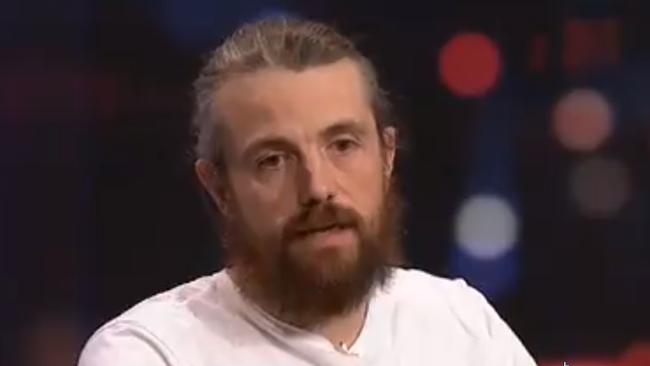
“It’s not purely around the climate change angle for them – it is about putting their economy in the best position,” Mr Cannon-Brookes said.
“They’re a long-term thinking nation and very cleverly have controlled a lot of the technologies in the renewable era that we’re entering into, from panels to batteries to electric vehicles, they control and are the major producer of those technologies.”
Despite the “rocky” state of Australia and China’s relationship, Veterans Affairs and Defence Personnel Minister Darren Chester said trade is “highly likely to continue”.
“China is still building more coal-fired power stations today and will still require Australian coal for the foreseeable future, and it’s a major export winner for Australia and importing countries as well,” Mr Chester said.
However, Mr Cannon-Brookes said the number of planned coal-fired power plants versus the number that are actually built has started to shrink and will continue to do so.
READ the full story here
David Ross 7.02am: WHO to roll out 30-minute Covid test across globe
The World Health Organisation has pledged to roll out 120m rapid and cheap COVID-19 test across the world in a bid to control the spread of COVID-19.
The tests, which WHO director general Dr Tedros Adhanom Ghebreyesus would cost $5, are to be made available to low and middle-income countries.
“This will enable the expansion of testing, particularly in hard-to-reach areas that do not have laboratory facilities or enough trained health workers to carry out tests,” he said.
“This is a vital addition to the testing capacity and especially important in areas of high transmission.”
The tests would deliver results in 15-30 minutes.
The rollout comes as global deaths caused by COVID-19 are certain to top 1m within the day, with the official tally from John Hopkins University of 999,298 already well surpassed.
WHO emergencies director Michael Ryan on Friday asked if the world was prepared to do what was required to stop the death toll reaching 2m.
“One million is a terrible number and we need to reflect on that before we start considering a second million,” he said.
The virus has severely impacted the functioning of many economies, but some are attempting to return to a new normal.
A cruise ship launched in Greece on Sunday with 920 passengers and 150 crew is now being forced to return to port after 12 of its crew tested positive to COVID-19.
New York City, hard hit by the first wave of COVID-19 and the original epicentre of the pandemic in the United States, is now seeing a concerning rise in positive test results as the virus reappears.
Positive tests have reached an average of 1.5 per cent, from an earlier rate of 1 per cent, showing more of those getting tested carry the virus.
However, in some midwestern states, 15 per cent of tests are coming back positive well above the 5 per cent threshold from the WHO which would suggest not all positive cases were being captured by testing.
Cases in the United States have passed 7.13m, while deaths are nearing 205,000.
India remains the second-worst affected country for cases of COVID-19, but Brazil has still lost almost 60,000 more of its citizens after the havoc wrought by the virus throughout the first half of the year.
Canada, originally seen as a strong performer against the virus, is now seeing a resurgence of cases in its Ontario region, where more than 700 cases were recorded on Monday.
A group of doctors and health professionals from the Ontario Hospital Association have urged the provincial government to reimpose health restrictions on indoor dining, places of worship, gyms, movie theatres and non-essential businesses.
However, the call was rejected by the provincial government.
The prospect of lockdowns in other parts of Canada is being floated in a bid to contain the viral spread, with Quebec City and Montreal likely to be hit with new restrictions in days.
Canada has recorded 156,502 cases of COVID-19 since the start of the pandemic.
The Czech Republic and Slovakia will likely declare states of emergency this week to combat the coronavirus pandemic after a sharp rise in cases.
The Czech Republic, one of the first countries in Europe to relax restrictions, is now seeing a large rise in cases.
Under proposed restrictions, all sporting and cultural events, and religious services would be banned from Thursday October 1.
Hospitality venues would be forced to shut their doors at 10pm and people interacting with members of other households would be required to wear masks.
Funerals and weddings will only be allowed if attendees have been tested negative for COVID-19
READ MORE Global coronavirus death toll passes one million
Adam Creighton 5am: Coronavirus elimination strategy ‘will cost us $319bn’
The cost of trying to eliminate the coronavirus from Australia is more than annual government spending on defence, education, health and social security combined, according to new economic modelling released by a free-market think tank.

From June this year to the middle of 2022, the “elimination strategy” being pursued by state and federal governments will cost $319bn, equivalent to 23 per cent of GDP, the report, Medical Capacity: An Alternative to Lockdowns, has estimated.
“Put another way, the cost is the equivalent to 2.2 times the total annual value of Australia’s entire healthcare and social assistance industry,” the report, written by research director Daniel Wild and Institute of Public Affairs associate Asher Judah, concluded.
The report comes amid debate about the proportionality of Victoria’s ongoing lockdown, which is set to last at least another three weeks, and ahead of the federal government’s budget, expected to reveal the biggest deficit since the 1940s.
4 April 2020.pic.twitter.com/5q3gXzyAmn
— Institute of Public Affairs (@TheIPA) September 28, 2020
Read the full story here.
Remy Varga 4.45am: Victorian bureaucrats singled out over 768 deaths
Victoria’s hotel quarantine inquiry has been urged to find public service chiefs failed to keep Daniel Andrews and key ministers informed about major problems in the state’s quarantine regime which sparked a second-wave outbreak that claimed 768 lives and infected more than 18,000 people.
Counsel assisting the inquiry, Ben Ihle, laid out a litany of adverse recommendations and said there was an “inexplicable oversight in relation to important information” about the program.
In the final statements before the inquiry, Mr Ihle and the other counsels assisting — Tony Neal QC and Rachel Ellyard — said it was clear the program had “failed to meet its primary objective to keep us safe from the virus”.
A cloud now hangs over the immediate futures of the three public servants — Department of Premier and Cabinet secretary Chris Eccles, Department of Health and Human Services secretary Kym Peake and Department of Jobs secretary Simon Phemister.
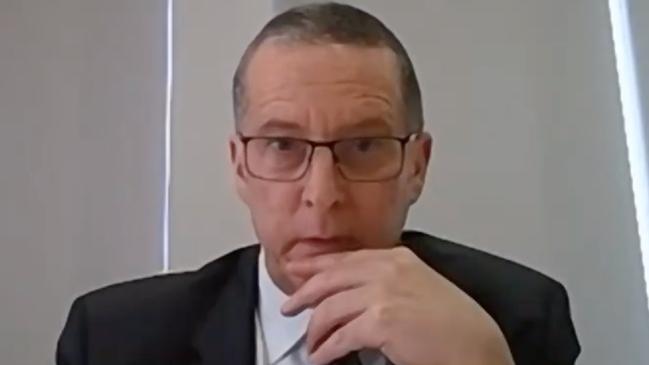
Read the full story, by Remy Varga, Ewin Hannan and Rachel Baxendale, here.
Rosie Lewis 430am: Kiwis allowed back into Australia by November
New Zealanders and Australians living across the Tasman would be allowed into the country without quarantining from November under a tourism industry “restart” plan, as Jacinda Ardern considers a state-by-state “travel bubble” before Christmas.
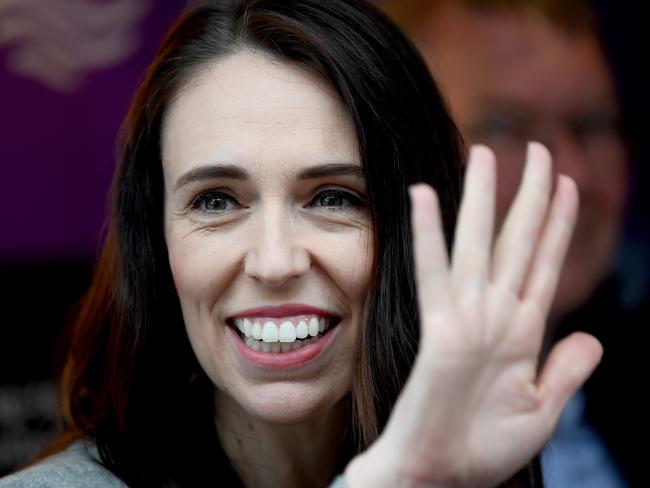
The tourism restart task force, which comprises representatives from the Australian Chamber of Commerce and Industry, Tourism Australia, Flight Centre, Tourist Accommodation Australia and other business leaders, has agreed to a revised timetable to reopen parts of their decimated sector.
Obtained by The Australian, the plan calls for all state border closures to be removed by December 1 and people from New Zealand would fly into Australia in November without any restrictions. Australians would be able to go to New Zealand without quarantining in a hotel by January or February.
Read the full story here.




To join the conversation, please log in. Don't have an account? Register
Join the conversation, you are commenting as Logout